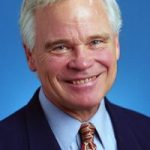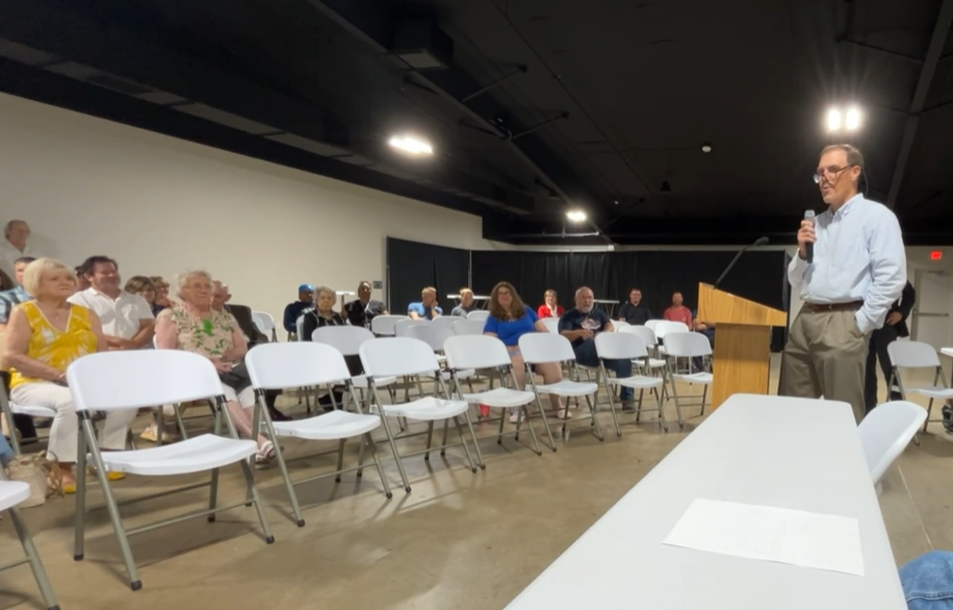DG MARTIN COLUMN: The Desi diaspora and American presidential politics
Published 2:34 pm Monday, August 5, 2024
|
Getting your Trinity Audio player ready...
|
If you want to understand what has been happening in this year’s presidential contest, it will help if you know the term “Desi.”
Desi is a term used to describe or identify immigrants and other people connected to the Indian subcontinent.

D.G. Martin
Desi is not a word you would have ever needed to explain American presidential politics until the 2020 presidential election when Kamala Harris was briefly a candidate for the Democratic nomination, and then became the Democrats’ vice-presidential nominee.
During her short 2020 primary campaign, voters learned that Harris’ mother was an immigrant from India and her father was a Black immigrant from Jamaica.
Harris did not make much of it, but she quietly claimed her many Desi connections.
Recently at the National Association of Black Journalists convention in Chicago, former President Trump said that Harris was newly claiming a Black identity. He said, “I didn’t know she was Black until a number of years ago when she happened to turn Black, and now she wants to be known as Black.”
“So I don’t know. Is she Indian? Or is she Black?”
The BBC, reporting on the convention explained, “Ms. Harris has described growing up engaged with her Indian heritage and often visited the country. Her mother also immersed her two daughters in the Black culture of Oakland, California — where she was raised, she said.”
For five years, beginning in 1976 Harris and her sister shuttled between Montreal, Canada, where their mother was doing breast cancer research, and California, where her father was an economist at Stanford.
She has a wide range of cultural and religious connections. Growing up, she attended Black Baptist churches and visited Hindu temples. She joined San Francisco’s Third Baptist Church. She is married to a Jew.
Harris’ Indian connections make her a Desi.
Still, it was Nikki Randhawa Haley, former South Carolina governor, former U.N. Ambassador, and candidate for the 2024 Republican presidential nomination, who first got my attention to the growing participation of Desis in American political life.
She was brave enough to challenge Donald Trump in this year’s Republican primaries.
She was also did not hide her origins as the child of immigrants from India. Although both Haley’s parents remained Hindu, she converted to her husband’s protestant religion.
Another Desi who gained attention in the 2024 Republican presidential primaries is Vivek Ramaswamy, young wealthy businessperson whose parents were born in India.
Ramaswamy’s Yale Law School classmate, Republican vice presidential nominee, JD Vance, is married to another Yale classmate, Usha Chilukuri Vance, a practicing Hindu and definitely a Desi.
While Desis are connecting to other important leaders in both political parties, former President Donald Trump is not connecting to the Desis. But he acknowledges that he has changed his religious connection. In 2010 he said that “Though I was confirmed at a Presbyterian church as a child” he “no longer identifies as a Presbyterian” and now sees himself as a nondenominational Christian.
Are the Desis taking over American politics?
Desis such as Harris, Haley, Vance’s wife Usha, and Ramaswamy do seem to be dominant in today’s political news.
Desis are not yet in charge of the entire country. But in our state, they have a good start
North Carolina has at least one important political Desi, State Senator Jay Chaudhuri (D-Wake). His parents were Bengal immigrants.
Although he was born in Tennessee, his parents moved to Fayetteville when he was 3. He attended Terry Sanford High School in Fayetteville, and later Davidson College, Columbia University, and finally N.C. Central University School of Law.
One other thing is clear. The Desis are still coming more and more to places like North Carolina, where high paying jobs for well-educated people are plentiful. As the Desis compete for the best jobs, they will leave some of us traditionalists behind.
And they will want a fair share of political opportunities. Both Democrats and Republicans and their families will have to adapt, too.
It may be painful and challenging for some, but exciting for those who welcome the changes that newcomers bring to our country.
D.G. Martin, a retired lawyer, served as UNC-System’s vice president for public affairs and hosted PBS-NC’s “North Carolina Bookwatch.”






